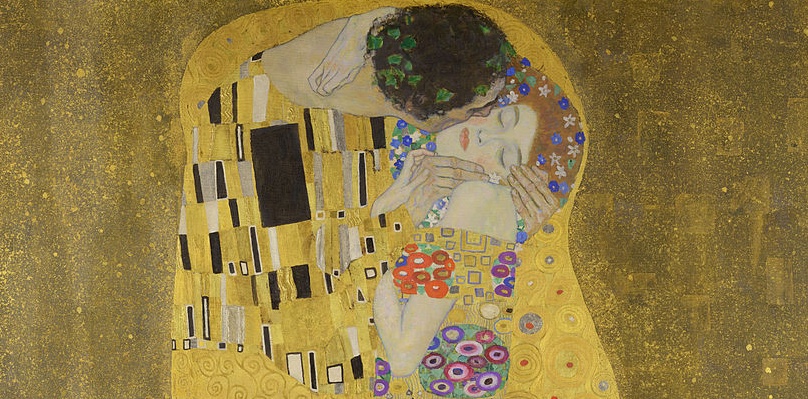Somewhere between ghosting culture and a thousand unread texts, between lockdown-induced alienation and dopamine-fuelled TikTok scrolling, we stopped yearning, and emotional repression became a lifestyle. We wear our indifference like a Gucci belt, which is functional, fashionable, and utterly devoid of heat. It is not just apathy; it is emotional taxidermy.
In Pride and Prejudice, Darcy says, “You must allow me to tell you how ardently I admire and love you.” That kind of chest-thumping, full-throated romantic idiocy would get you exiled to cringe-Tok in 2025. These days, if you tell someone how ardently you admire and love them, they block you and call you manipulative. We have mistaken detachment for depth. People, especially men, have been taught that the ability to suppress emotion is somehow a form of maturity. But that’s not maturity. That’s emotional Botox. Sure, it smooths out the mess of feeling, but it leaves you numb. Maturity is not the refusal to care but the ability to survive caring.
A collapse in communication is happening around us, and no one wants to name it. So here I am, naming it: emotional immaturity dressed in stone-cold vibes. Men, in particular, have become casualties of a culture that told them to be strong and then removed all the ways they could express strength in a healthy way. The old ‘provider’ role is dying, and nothing clear has replaced it. So they become silent, scrolling, watching, and withholding. Freud would have had a field day.
To psychoanalyse this digital frostbite, repression is no longer an accident; it’s a method that certainly protects us from heartbreak, but also from meaning. In Freudian terms, the libido has been sublimated not into works of art but seven-second videos and ironic memes. We have stopped creating catharsis and started recycling it. If yearning was the soul’s way of articulating its hunger, we have placed that hunger on a strict intermittent fasting diet. No wonder so many situationships end without ever beginning. We don’t date anymore: we merely orbit. We do not confront: we leave on read. Silence used to be golden, and now, it’s passive-aggressive.
Before anyone asks, no, this discussion is not about me. This conversation concerns the guy who ignored you all night at Spoons because making eye contact would have revealed the gaping hole in his sense of self. This is about the group chats, where no one says how they feel until 2:41am on a Thursday, when someone finally asks “Guys, are we OK?” before deleting it two minutes later. This is about our collective refusal to yearn.
Poetry used to be written because things were hard, because yearning had nowhere else to go. People wrote about longing for someone they could never have, even while living in a world where women could not vote and men died at war. Yet there was a feeling there, a complicated, ungovernable, sincere feeling. We now have a society where gender equality has found a more secure footing, but everyone is emotionally constipated. Was it the pandemic? Or was that just a tipping point? Boys, in particular, have been socialised into this stoicism-lite for decades, and now it has metastasised. They are not allowed to feel, so they perform not-feeling. And the scary part is that they are getting good at it. Women, too, are catching the contagion. Why show softness when it is only ever read as weakness?
Indifference is not cool or aesthetic, it’s just sad. We’re all so busy pretending not to care that we’ve forgotten what it feels like to care deeply. To yearn is to risk, yes. But it’s also when we feel most alive. We don’t write love letters anymore; we send memes. We don’t say, “I miss you,” we say, “LOL, this reminded me of you,” and hope they hear the ache buried inside the emoji. What is tragic is not that people are single; it’s that so many are unreachable. The people we meet are already armoured. Vulnerability is so rare now that it feels like a glitch in the simulation, and is, honestly, unsettling.
Indifference, crucially, is not just a passive state, it’s a performance. It’s curated silence, the carefully timed “seen” notification, the slow drip-feed of attention that suggests power without presence. It’s a cultivated distance that says: “I could care, but I won’t.” This is not detachment born of peace; it’s theatre born of fear. We rehearse emotional coolness like a role we’re desperate to play convincingly, convinced that sincerity is embarrassing and warmth is a weakness. The result is a generation fluent in the aesthetics of aloofness but starved of genuine intimacy. We don’t just repress; we brand the repression and hope someone finds it desirable.
This behaviour is not just a cultural phenomenon; it is also political. Indifference is a tool of neoliberalism. If you cannot care deeply, you will not protest sincerely. You will not demand better from governments, lovers, or yourself. Emotional numbness is how systems of power survive.
So, no, this is not a personal spiral, but a soft, yearning, defiant call to arms. Write poetry. Send cringey texts. Burn things. Say “I miss you” and mean it. Bring back the yearning. If we don’t, we will lose our connection and the very essence of what makes us human.


